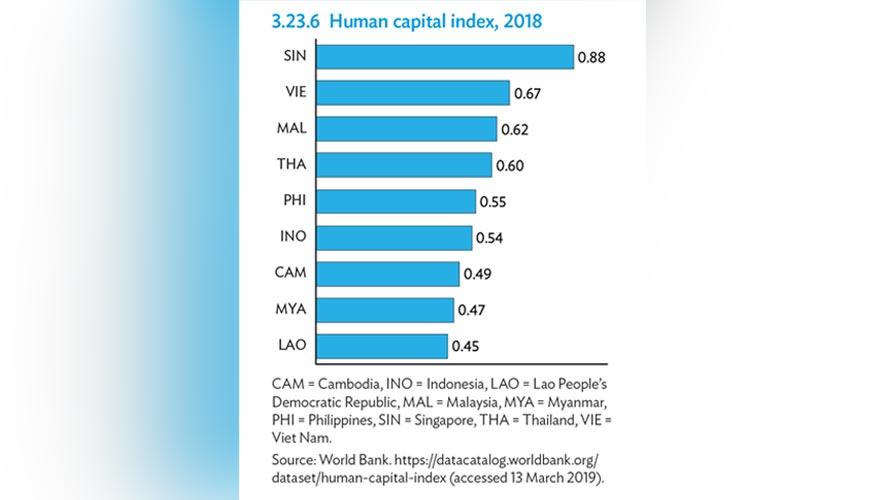Technical education and vocational training fall short of expectations for a skilled nation in spite of efforts to move up the value chain
For the latest Cambodian Business news, visit Khmer Times Business
Although Cambodia has achieved notable progress in education, it does not commensurate with the skill level in the industrial sector, says Asian Development Bank in its 2019 outlook report on Wednesday.
“Recent surveys and studies highlight that investors and businesses are constrained by a widening gap between the skills the workforce possesses and those it needs,” the bank states.
The latest report highlights the critical challenge of the so-called skills gap caused by a mismatch between skills supplied by the existing workforce and those demanded by employers.
Its country director Sunniya Durrani-Jamal says that a key driver of growth in future would be improving the quality of Cambodia’s human capital including technical and vocational skills to meet the demand of the private sector.
“Investors should look into the labour quality in the country especially in the garment sector. Countries such as Sri Lanka are held high on the list as they possess high skilled workers in the garment sector,” she adds.
Sunniya says progress should also take place in the agricultural sector so that people in the rural area adopt skills involving food processing. This can lead to further sophisticated manufacturing.
“The education level in Cambodia requires improvement for better soft skills and reliability on people to be produced,” she adds.
Reflecting the dire gap in Cambodia, World Bank’s Human Capital Index 2018, a composite measure of enrolment and drop out rates, average number of schooling years, and learning quality while in school, revealed that Cambodia’s ranking in Asean was just above Laos and Myanmar but its index score of 0.49 fell far short of Vietnam’s 0.67.
“A worsening mismatch between the skills demanded by industry and business, and those imparted to youths in schools, and institutions that specialise in technical and vocational education and training (TVET) is the most important factor causing the skills gap. Unless it can be closed expeditiously, Cambodia will squander the demographic dividend it enjoys in having a young and expanding workforce,” ADB says.
While the general worry is that Industry 4.0 might affect human labour, leading to unemployment, a more critical focus should be that labour needs to be upskilled.
Doing so, would mean that Cambodians are more equipped to handle new technologies like automation and robotics.
It should, however, be noted that narrowing the skills gap has been on the national agenda for the past few years.
In the Cambodia Job Outlook 2018 report by the National Employment Agency, skills shortage is reported to have gradually increased in parallel to the rise in labour demand.
The report shows that 48 percent of employers experienced recruitment difficulties, with over 53 percent applicants lacking required skills, work experience or qualification.
Recently, the government announced its National TVET Policy (2017-2025) which focusses on closer collaboration between education institutions and private businesses.
“This collaboration promises to make education more market-driven,” ADB says.
To help keep students in school and learn skills needed for the digital age, Cambodia needs more and better teachers and financial support for poor children and meritorious students, it adds.




